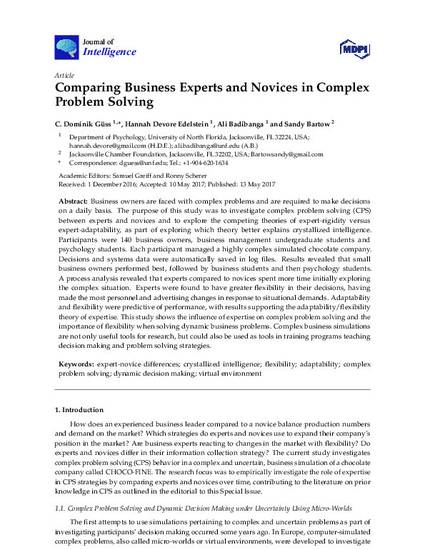
Business owners are faced with complex problems and are required to make decisions on a daily basis. The purpose of this study was to investigate complex problem solving (CPS) between experts and novices and to explore the competing theories of expert-rigidity versus expert-adaptability, as part of exploring which theory better explains crystallized intelligence. Participants were 140 business owners, business management undergraduate students and psychology students. Each participant managed a highly complex simulated chocolate company. Decisions and systems data were automatically saved in log files. Results revealed that small business owners performed best, followed by business students and then psychology students. A process analysis revealed that experts compared to novices spent more time initially exploring the complex situation. Experts were found to have greater flexibility in their decisions, having made the most personnel and advertising changes in response to situational demands. Adaptability and flexibility were predictive of performance, with results supporting the adaptability/flexibility theory of expertise. This study shows the influence of expertise on complex problem solving and the importance of flexibility when solving dynamic business problems. Complex business simulations are not only useful tools for research, but could also be used as tools in training programs teaching decision making and problem solving strategies.
Available at: http://works.bepress.com/dominik-guess/5/

Originally published in the Journal of Intelligence vol.5, no.2.
https://dx.doi.org/10.3390/jintelligence5020020